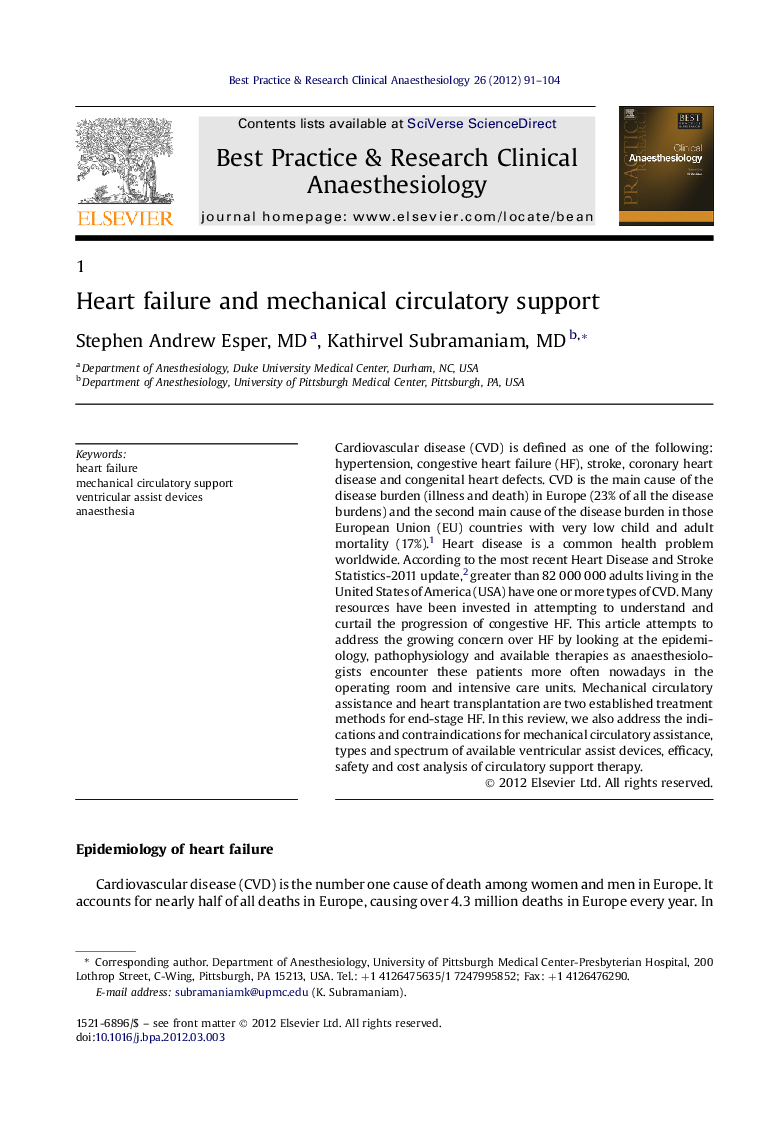| Article ID | Journal | Published Year | Pages | File Type |
|---|---|---|---|---|
| 2748461 | Best Practice & Research Clinical Anaesthesiology | 2012 | 14 Pages |
Cardiovascular disease (CVD) is defined as one of the following: hypertension, congestive heart failure (HF), stroke, coronary heart disease and congenital heart defects. CVD is the main cause of the disease burden (illness and death) in Europe (23% of all the disease burdens) and the second main cause of the disease burden in those European Union (EU) countries with very low child and adult mortality (17%).1 Heart disease is a common health problem worldwide. According to the most recent Heart Disease and Stroke Statistics-2011 update,2 greater than 82 000 000 adults living in the United States of America (USA) have one or more types of CVD. Many resources have been invested in attempting to understand and curtail the progression of congestive HF. This article attempts to address the growing concern over HF by looking at the epidemiology, pathophysiology and available therapies as anaesthesiologists encounter these patients more often nowadays in the operating room and intensive care units. Mechanical circulatory assistance and heart transplantation are two established treatment methods for end-stage HF. In this review, we also address the indications and contraindications for mechanical circulatory assistance, types and spectrum of available ventricular assist devices, efficacy, safety and cost analysis of circulatory support therapy.
